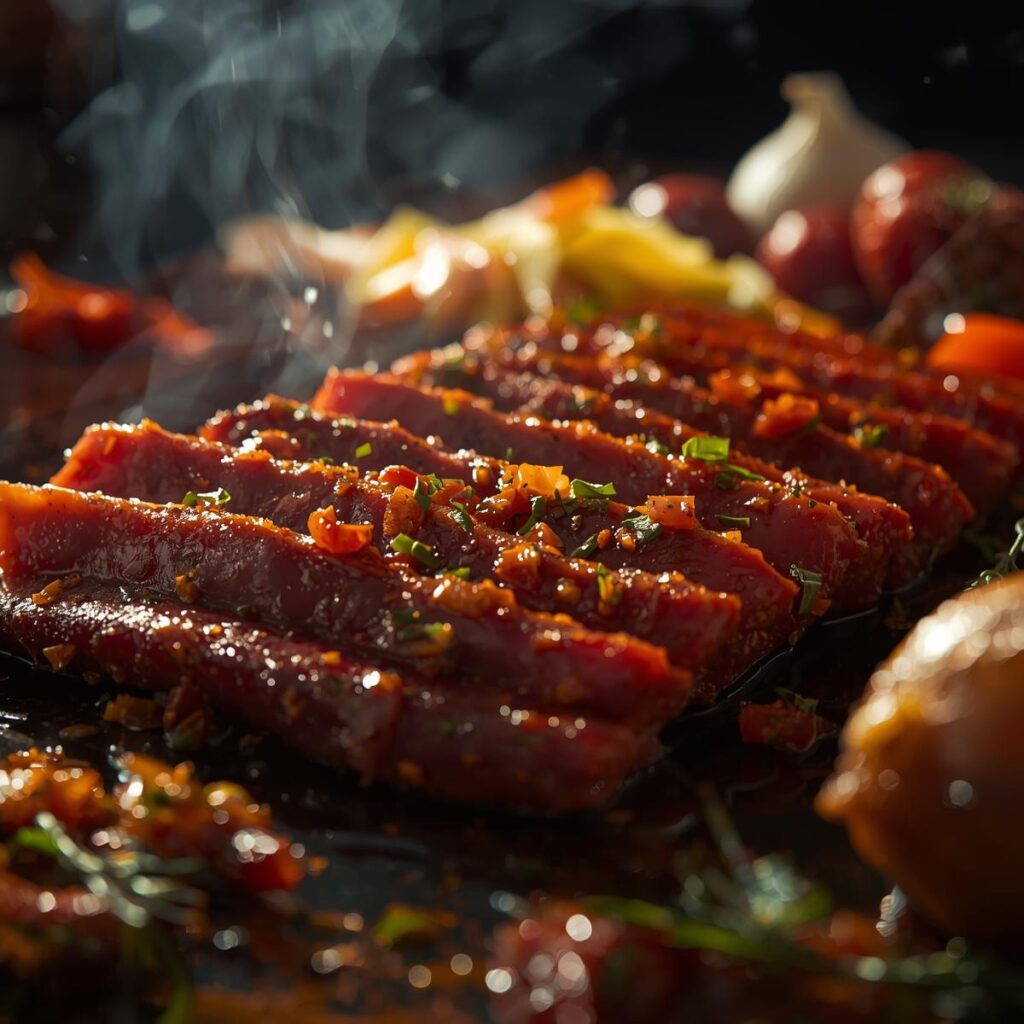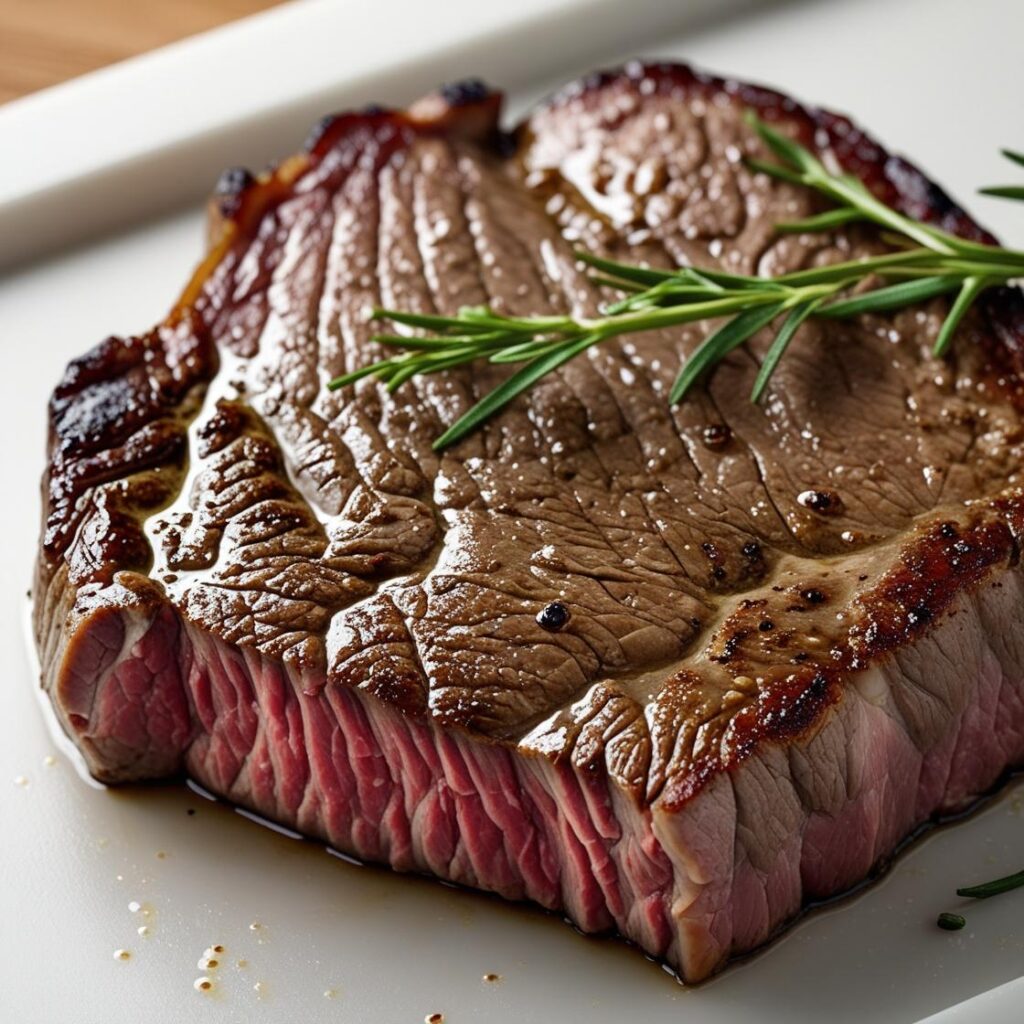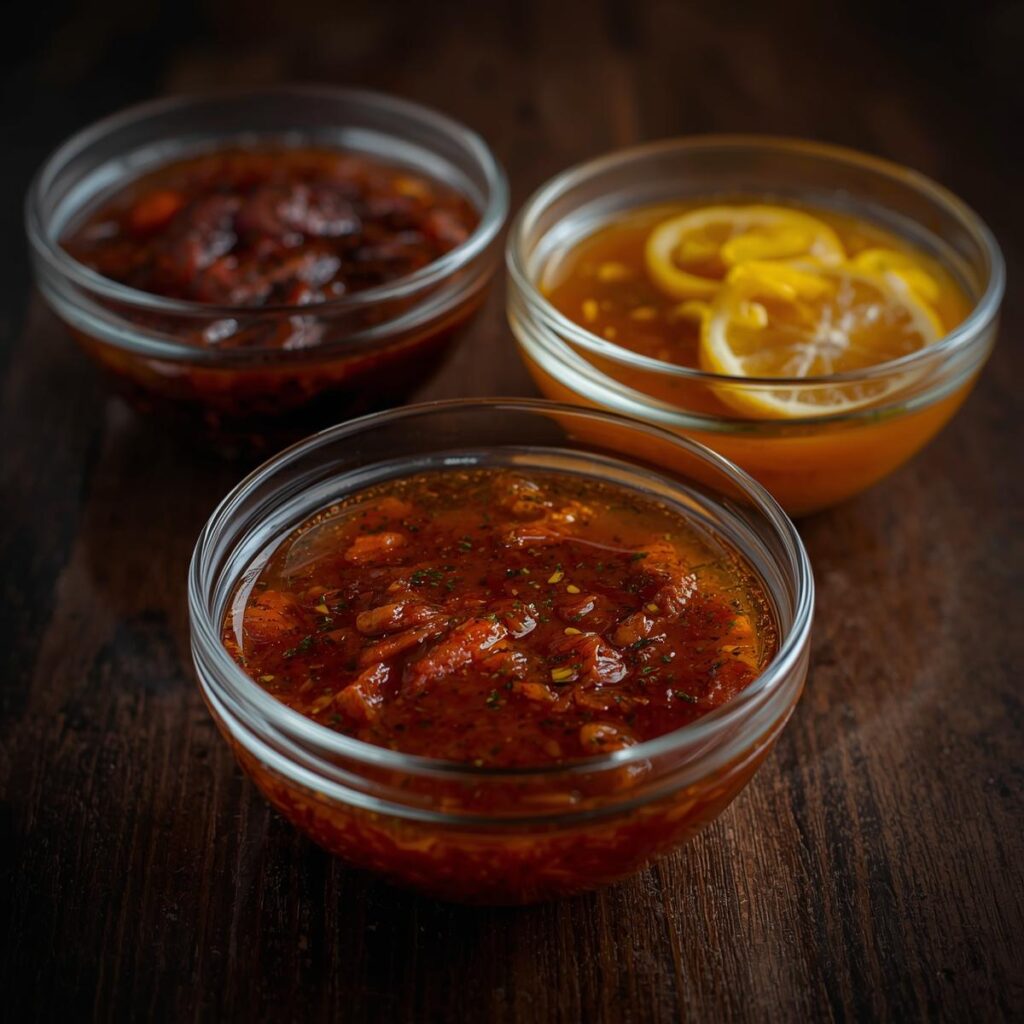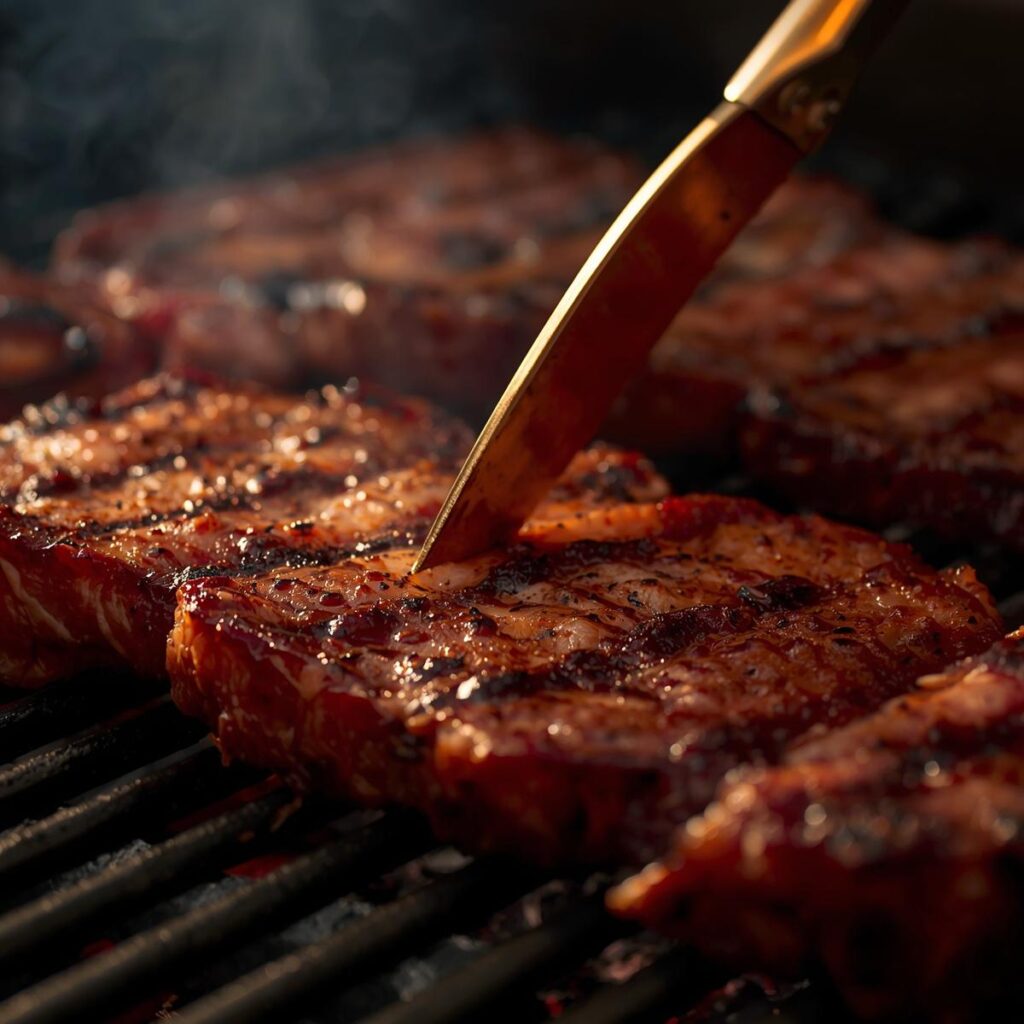How Marinades Tenderize Meat: The Science Explained
A good marinade does more than just add flavor; it has the power to fundamentally change the texture of meat, turning a tough cut into a tender and juicy masterpiece. This isn’t magic—it’s food science at its best. In this post, we’ll dive into the secrets behind how marinades work and how you can use acids and enzymes to your advantage to elevate your cooking.
The Role of Acids in Marinades
Acids are a foundational component of many marinades, from simple vinaigrettes to more complex sauces. The most common acidic ingredients include vinegar, citrus juices (lemon, lime, orange), yogurt, and buttermilk. Their primary job is to tenderize by a process called denaturation.
What Happens at a Molecular Level?
Meat is primarily made of muscle fibers, which are bundles of protein strands. When meat is heated, these proteins contract, and a tough cut can become even tougher. However, when you introduce acid, it begins to “unwind” these protein strands. The acid breaks down the tight bonds in the muscle fibers, causing them to loosen and soften. This is why a marinade can make meat noticeably more tender, even before it hits the grill.
It’s important to note that you can have too much of a good thing. Over-marinating in a high-acid liquid can cause the meat to become mealy or mushy, as the proteins begin to break down too much. For most cuts, a few hours is enough to get the job done.
The Power of Enzymes
While acids can tenderize by denaturing proteins, some natural ingredients contain powerful enzymes that break down protein strands in a different way. These enzymes are like tiny biological scissors that cut through the muscle fibers, offering a highly effective method of tenderization.
Key Enzymatic Ingredients
- Pineapple (Bromelain): Fresh pineapple is loaded with an enzyme called bromelain. This is one of the most potent natural tenderizers you can use. Note that canned pineapple is often pasteurized, which deactivates the enzyme, so be sure to use fresh if you want the tenderizing effect.
- Papaya (Papain): Similar to pineapple, papaya contains the enzyme papain, which is widely used in commercial meat tenderizers. Papain is particularly effective and can quickly make meat tender.
- Kiwi: Less known, but still effective, kiwi contains a protein-digesting enzyme called actinidin. It’s an excellent way to add flavor and tenderization without the strong tropical taste of pineapple or papaya.
Creating a Balanced Marinade
A great marinade is a symphony of flavors, and its effectiveness comes from a balance of different components.
The Flavor-Building Trio
- Acids and Enzymes (for tenderization): As we’ve seen, this is the foundation for creating a tender piece of meat.
- Oils (for moisture and flavor transfer): Oils, such as olive oil or vegetable oil, play a crucial role. They help carry fat-soluble flavors from spices and herbs, and they coat the meat to help it retain moisture during cooking. This also prevents the meat from sticking to the grill.
- Seasonings (for flavor): This is where you can get creative. Use a combination of salt, pepper, herbs, spices, garlic, onion, and other aromatics to build your flavor profile.
Marinade Best Practices
- Use a Non-Reactive Container: Always use a glass, ceramic, or food-safe plastic container to marinate. The acids can react with metal, imparting a metallic taste to your food.
- Don’t Reuse: Never reuse a marinade that has come into contact with raw meat, as it can contain bacteria. If you want to use some as a sauce, set aside a portion before adding the meat.
- Mind Your Time: The amount of time you marinate depends on the meat’s toughness. Delicate poultry and seafood only need 30 minutes to an hour, while tough cuts like flank steak can benefit from 4 to 12 hours.
Frequently Asked Questions (FAQ)
What is the maximum time I should marinate meat? The ideal marinating time varies by the type of meat and the acidity of your marinade. For a marinade with a high acid content (like one with lots of citrus juice), it’s best to marinate for no more than 4 hours to avoid a mushy texture. For less acidic marinades, you can go longer, from 6 to 12 hours for tougher cuts.
Can a marinade tenderize meat if it doesn’t contain an acid or an enzyme? No, the tenderizing effect is directly tied to the presence of acids or enzymes. While a marinade without these components can add moisture and flavor, it won’t break down the muscle fibers to make the meat more tender.
Do I need to pat the meat dry after marinating? Yes. For most grilling or searing applications, patting the meat dry with a paper towel is a crucial step. This removes excess moisture from the surface, allowing the meat to form a flavorful crust and preventing it from steaming instead of searing.
Why is it important to use a non-reactive container? Using a container made of glass, ceramic, or food-safe plastic is essential because the acids in a marinade can react with metals like aluminum, copper, or cast iron. This chemical reaction can leach a metallic flavor into your meat and potentially cause food poisoning.
Conclusion
Understanding the science behind marinades gives you an edge in the kitchen. By harnessing the power of acids and enzymes, you can consistently achieve incredibly tender and flavorful results. The next time you prepare a marinade, remember that you’re not just adding flavor; you’re starting a chemical reaction that will transform your meal.
Now that you’ve unlocked the science of marinades, are you ready to master the full art of seasoning? For a comprehensive guide to rubs, marinades, and brines, check out our ultimate resource: How to Season Meat: Rubs, Marinades, and Brines Explained.






